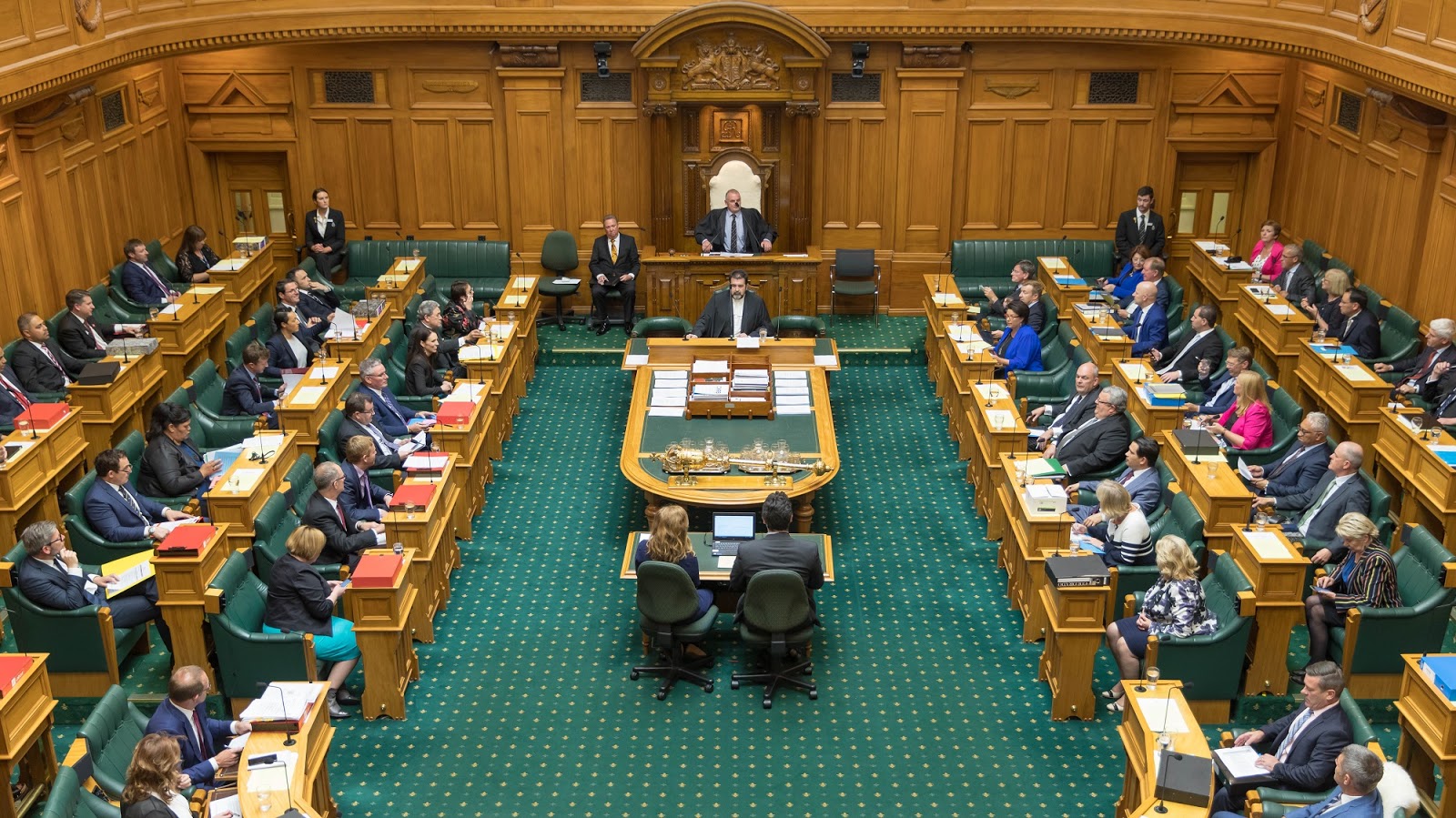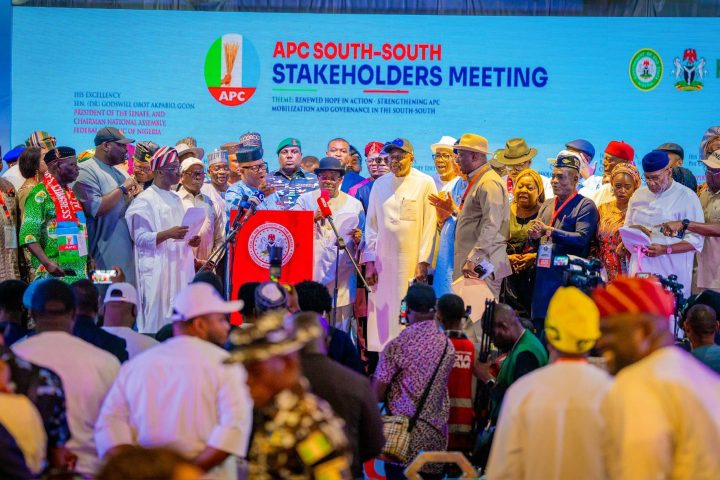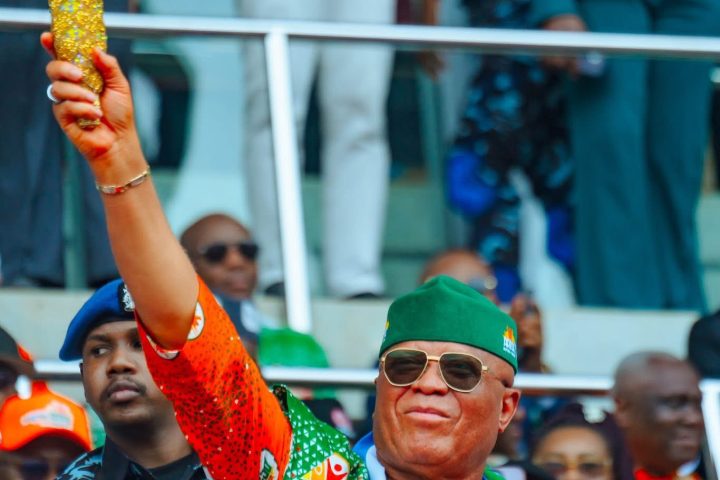ON Tuesday, October 12, 2021, the Nigerian Senate passed the electoral amendment bill, which among others approved electronic transmission of election results and compel all political parties in the country to use direct method of conducting party primary for the selection of candidates for electoral contests. These are significant decisions, which could potentially enhance the credibility of Nigerian elections and expand the scope of citizens’ participation in politics. A critical success factor in terms of whether these decisions would achieve such potential outcomes has to do with capacity of both Independent National Electoral Commission (INEC) and political parties to develop the needed organisational capacity to administer the new legal framework provided under the amended electoral law.
Specifically, INEC will have the direct responsibility of transmitting all election results electronically. This would include developing all the technological infrastructure, procurement and installations of all the hardware and software as well as recruitment and training of all the personnel requirement for the electronic transmission of electoral results. No doubt, this is a groundbreaking decision given that physical process of transmitting election results from voting areas to collation centres give space for rigging. Noting that since 2011, the introduction of card reader technology for voter accreditation has significantly weaken the capacity of politicians to inflate election results, which during previous elections produced voter turnout close to hundred percent of registered voters. If the new electoral amendment is passed, it should be expected that introduction of technology to the process of transmission of electoral results would similarly weaken the capacity of politicians to interfere or manipulate the election during the process of transmission of results.
Join our WhatsApp ChannelPrior to the October 12 decision of the Senate, there were proposals by many Senators and members of the House of Representatives that the National Communication Commission (NCC) should confirm that the national communication infrastructure can permit the electronic transmission of election results from every part of the country. Many Nigerians criticise such a proposal based on the understanding that it will erode the independence of INEC, partly because subordinating INEC to NCC, being an executive body directly under the control of the President, would imply conferring some levels of advantage for the party controlling government at federal level. The new amendment adopted on Tuesday October 12 therefore eliminated such potential advantages, which demonstrated a positive shift by the Nigerian Senate based on public criticism. This is very commendable, and it significantly indicate high measure of responsiveness by Senators of the Federal Republic. Nigerians hope that the Conference Committee involving members from the House of Representatives would eventually adopt the new amendment and President Muhammadu Buhari will eventually assent to the new bill.
Once that is done, the bulk of the work to operationalise the new law to effectively transmit election results from voting areas to collation centres electronically will be the responsibility of INEC. Given that INEC’s institutional capacity for deployment of technology during elections has been test successfully with the introduction of card reader since 2011 elections, Nigerians expect that deployment of technology to manage the process of collation of results through electronic transmission of election results commencing with the 2023 election would also be successful and to that extent make Nigerian electoral process more credible. And like the introduction of card reader technology drastically reduced electoral litigation due to manipulation of accreditation, litigation arising from alleged manipulation of collation process should also be reduced. With such development, the only aspect of Nigerian election that will not be technologically driven is the actual voting. This will mean that some of the challenges bordering on vote buying, which is very rampant would still be there.
It is therefore important to continue to engage the debate about making the Nigerian electoral process more credible based on corresponding provision of electronic voting opportunity as part of the Nigerian electoral laws. Nigerian Senators should be commended for this landmark decision of approving electronic transmission of election results to be in Nigeria’s electoral law. Investing INEC with such a responsibility independent of other agencies of government is a demonstration of high measure of responsiveness by Senators. In the same measure, Nigerians who actively engaged the debate of the amendment proposals in the National Assembly, especially leaders of civil society organisations should be equally commended. Without their engagement, the decision of the Senate of October 12 may have been different.
Certainly, a lot of progress has been made in the development of both Nigeria’s electoral jurisprudence and electoral management. Partly, on account of this reality, there is increasing public confidence even among politicians that INEC should be given more responsibility to regulate political parties, especially with respect to internal party elections to select candidates for election. Unlike in the past, at least before 2011, when Nigerians consider INEC as the extension of the ruling party, relatively today, INEC’s independence is greater and more reflected in the results of elections. The party in power at federal level loses elections as much as the opposition, if not more. Votes now count and the margin of inaccuracy in terms of results of elections is getting smaller since the commencement of introduction of technology in Nigerian election in 2011.
The disconnect however is that although progress in being made to enhance the processes of election management in the country, management of political party remained very backward. The practice across all Nigerian parties is that political leaders aspiring to contest elections for political offices recruit members. The aspiring political leader influence choices of party leaders based on estimation of loyalty. The loyalists who emerge as political leaders in turn become delegates during party primary for the selection of candidates for election, who then confirmed the aspiring political leader as the party’s candidate for election.
Issues of membership participation and internal party democracy are compromised, professional management of political parties doesn’t exist, and disciplinary conduct of members and leaders are sacrificed. The consequence is the preponderances of unethical, and unfair practices by party leaders. Lack of professionalism and absence of viable democratic funding sources are major characteristics of Nigerian political parties. This explains why for instance external auditors’ report on the accounts of political parties by INEC raised issues bordering on absence of internal audit, accounting books not properly maintained, lack of budget and budgetary control, and poorly defined, fixed assets registers, among many others.
Notably, issues of membership participation especially during the process of selection of party candidates within political parties in Nigeria is a major source of national frustration, which is perhaps the rationale behind the October 12 Senate proposal to compel all parties to adopt the direct method of primary to weaken the capacity of some power blocs within parties from manipulating internal process of candidate selection. The current dominant reality of choosing candidates for elections in virtually all political parties in the country is through the indirect method of using delegates in all parties. The critical issue of citizens’ participation in politics and how it leads to the difficult task of candidates’ selection is an issue that appears to be the cause of most of the frustration of Nigerians with politics. The decision of the Senate to propose amendment to the Electoral Act to compel parties to use direct primaries to select candidates for election is informed by this reality.
The rationale for direct primary based on expanding the democratic space for membership participation is hardly contestable. Some of the questions requiring good responses, which further make the application of the direct mode of party primary appealing include, for instance: will increase in participation of party members lead to more citizens’ participation during general elections? Could it also bring party leaders closer to membership, or citizens closer to their elected representatives? The reality is that the space for participation of party members, or what some literature refers to as ‘logic for collective action’, which assumes that membership participation in activities of political parties is dependent on economic choices in diverse areas, including politics. This certainly would suggest that low participation means small groups of interests control the parties.
A strong corollary here is the issue of party funding? How are political parties being funded? Are there accountability mechanisms associated with the process of political party’s financial mobilisation? In other words, are members contributing to party’s finances? Are they aware of all the sources and size of contributions? Is the awareness of sources and size complemented by members’ consent of any expected transaction details associated with such financial contribution? The Nigerian reality bears some levels of dishonesties about issues of party funding. Party members, to say the least, are free riders. Across almost all Nigerian parties, issues of membership subscription hardly exist. Politicians aspiring to emerge as candidates for elections are the financiers of political parties, including funding electoral campaigns.
With that, political practice and culture in the party is about recruiting loyalists to be members. Once an aspirant has strong financial capability, he/she then controls the party. Such a person would then proceed to appoint loyalists to serve as party officials. Issues of membership and participation in political activities, including holding party positions and appointments into governments controlled by the party, are restricted to close associates and supporters, while professional management of the party and disciplinary conduct of members are conveniently ignored. The consequence is the preponderance of unethical, unfair and other substandard practices by the party officials and public officials. Party offices are reduced to territorial control with hardly any focus on the responsibilities associated with them. Cost considerations are tied to personal conveniences of politicians aspiring for elective offices and depending on which party organs are subordinated to campaign structures of contestants. As a result, lack of professionalism and absence of a viable democratic funding sources have become a major challenge for all Nigerian parties.
A number of these issues were highlighted in Chapter II of the publication Power of Possibility & Politics of Change in Nigeria released in 2019. Apart from APC, none of the other political parties is debating these issues. In fact, in many respects, it could be argued that part of the founding vision of APC is to change this reality. A lot of the internal contests in the party is about whether the party should abandon its founding vision and collapse into the conventional way of organising political contests in the country. In fact, the debate around direct or indirect primary has been a constant issue in APC since 2014. Part of the experience is that aspiring politicians and by extension god fathers who are aspiring to continue to impose their preferences as candidates would continue to undermine initiatives within the party to develop new organisational frameworks that can allow broader participation of members. It is another confirmation of Antonio Gramsci’s thesis about ‘the old is dying and the new cannot be born.’
Most of the public debates about internal democracy within Nigerian political parties hardly address the fundamental issues of membership management, party funding and administrations. So long as political parties in Nigeria are not challenged to alter the current framework, which reduced party members to free riders, with no financial responsibility, and party leaders at all levels surrogates of aspiring politicians, effectiveness of legal provisions will remain weak. With all its problems, in its short period, more than any party in the history Nigeria, at least in this Fourth Republic, APC has some empirical evidence to prove that we can have a law compelling political parties to use the direct method involving all members of the party to select candidates for elections but will not stop politicians from undermining the process. Recall that ahead of the 2019 elections, the decision in APC was that stakeholders in each state will decide on the mode of primary to select Governorship candidates.
In the case of Presidential primary, President Buhari opted for the direct primary. In many of the states, the votes returned for President Buhari was quite higher than the votes during the general election. For instance, Lagos State returned 1.9 million during the internal party primary but only got 580,825 votes during the general elections. In fact, the total voter turn out during the general election was just around one million. Similarly, Kano State returned 2,931,235 votes for the President during the party primary. But during the general election got only, 1,464,768. Like the case of Lagos, the total voter turnout for Kano State during the general election was less two million.
Without going into details, there were many instances in APC, in 2019, which recorded wide margin between results of internal party primary and the general election. Although, there could be some logical explanations accounting for most of the wide margins, but when it became uniform, almost suggesting a pattern that negates any possible correlation between alleged membership participation and voter turnout during elections, it should be a source of concern. Part of the reality in APC, which have been a source of debate especially leading to the membership registration and revalidation exercise organised by the Caretaker Extraordinary and Convention Planning Committee, led by His Excellency Mai Mala Buni was that some of the power blocs within the party preferred to maintain the old framework because it guarantees them control of structures of the party.
At another level, there is also the constant interest of virtually all politicians to gain advantage by way of commanding some levels of influence. Several of the complains that emerged against the membership registration and revalidation exercise carried out by the party reflect this reality. The same complaint by the same politicians resurfaces during the Ward, Local Governments and now, just concluded, State Congresses. When one review concerns raised following the Supreme Court Judgement on Ondo election, in addition to many who expressed legitimate concerns about the minority view by the panel of Supreme Court Judges who presided over the matter, almost all aggrieved persons in the party aggrieved from the membership registration and revalidation exercise attempted to use the minority decision to campaign for the removal of the Caretaker Extraordinary and Convention Planning Committee.
A major feature of the internal dynamics across all Nigerian political parties is that there are tense relations between members of the executive and legislative branches. Part of the factors accounting for the tense relations is that, predominantly, aspirations of members of the legislative branches to succeed governors are hardly supported by serving governors. This may be understandable when for instance a Senator or Member of the House of Representatives is plotting to block a serving governor from contesting for a second term. But it is worrisome when a clear pattern has evolved in the country across all political parties whereby it can almost be predicted that the probability will always be high that most serving governors would oppose members of the legislative branch from succeeding them.
Nigerians can continue to engage this debate based on the attraction to campaign against the control of party structures by serving Governors. To what extent, will any measure to free parties from the control of serving governors address the fundamental issues of membership management, party funding and administration? How can a legal provision compelling parties to use direct primary to select candidates for election address the problem of poor record of members, for instance? With poor records of members, it is almost certain that the phenomenon of internal process of candidate selection will be messier. Just imagine a situation whereby INEC is asked to introduce card readers to accredit voters without voters register.
At this point in the life of Nigerian democracy, there is the need to broaden the debate about membership participation to issues of relationship building among political leaders at all levels within parties. A situation whereby political leaders only develop relationship with people who only endorse their aspirations for elective offices is unhealthy. Sadly, relationships developed overtime, which endured many difficult challenging moments simply get sacrificed, often not because of opposition to political aspirations of party leaders but because disagreements have been expressed against personal positions of political leaders when the political rule as dictated by former President Olusegun Obasanjo is that there must be hundred percent loyalty. Even people who won their leadership qualification in Nigerian politics on account of being critical and providing leadership against perceived injustices became warriors and champions of politics of loyalty.
Unless the core issues of membership recruitment and management, party funding and administration are addressed in Nigeria, problems of internal democracy within political parties in the country will continue. Already, following the October 12 decision of the Senate, the Peoples Democratic Party (PDP) has announced it opposition to direct primary, which means issues of membership participation in the process of candidates’ selection is not PDP’s priority. In the case of APC, since 2013 when the merger negotiation leading to the emergence of the party was concluded, the vision was that eventually the internal process for candidate selection will be through the direct primary. Unfortunately, problems of putting in place verifiable membership register has continued to undermine the capacity of the party to actualise that vision.
There is the need to strongly appeal to all APC leaders to return to the founding vision of the party of ensuring that every member of the party is authorised as part of the internal rule to participate in the process of candidate selection for election. To achieve that will require the existence of verifiable membership record, which should be electronically preserved. The current manual analogue record must be upgraded to digital and computerised record with very competent officials managing it. Part of the appeal to APC leaders is that the process of electing national officers present a big opportunity to ensure that competent officers to run the affairs of the party, and not surrogates, are elected. Competent officers may not be attracted when the funding reality for the party is loosely defined. Therefore, as part of the compelling initiatives to return the party to its original vision, leaders of the party should conclude on issues of membership subscription and specifically take every decision about sources of funding for the party.
Once party funding is defined such that minimum resources needed to run party affairs are generated, remuneration and conditions of services for party leaders at all levels should be similarly defined. Part of the recommendation should be to benchmark party condition of service with existing conditions of public service. For instance, the National Chairman of the party could have the same remuneration and condition as the Vice President of the Federal Republic of Nigeria as provided in the 1999 Constitution as amended and other relevant provisions of other statutory bodies. Similarly, Deputy National Chairmen could have the same conditions as that of the Senate President, National Secretary, same conditions as that of the Secretary to Government of the Federation, other principal officers in the National Working Committee could have same conditions as Ministers while those of them that are Deputies or Assistants could have the same conditions as Ministers of State. Directors in the party Secretariat could have the same conditions as Permanent Secretaries. This logic can also be replicated at state and local governments levels.
The point is that so long as management of political parties failed to address these fundamental issues of membership recruitment and management, party funding and administration, Nigerians will continue to experience all the familiar challenges weakening internal democracy within political parties. To the extent that a number of these issues are being debated in APC, which is largely responsible for why an APC dominated Senate could propose compelling parties to include direct primary as the method for candidates’ selection by all parties as part of the electoral law, there is every hope that the potential is higher to be achieved in APC. APC leaders will have to make all the needed sacrifice to allow the party to develop the corresponding new orientation, to make the party emerge as truly the party of change. The caution must however be expressed that it will almost be impossible to achieve once disposition of party leaders is limited to aspiring to emerge as candidates for elections. Desperation to emerge as candidates for elections will always pitch party leaders against each other. Party structures will only be allowed to operate based on estimation of potentials to achieve political aspirations. Internal consultations, both formal and informal will be weak. Relationship between members of the executive and legislative branches, even when belonging to the same party, will be everything but cordial. Above all the powers of party management to regulate conduct of elected officials at all levels will remain a dream.
As much as enabling legal framework is required to guarantee internal democracy within parties, political leaders at all levels should be ready to make the right sacrifices. Making sacrifices in politics must be seen beyond personal advantages to access elective and appointive offices. Ability to develop strong institutional capacity to command the respect and confidence of party members is an important democratic enabler for both electoral victory and security for political leaders in the long run.
This position does not represent the view of any APC Governor or the Progressive Governors Forum














Follow Us